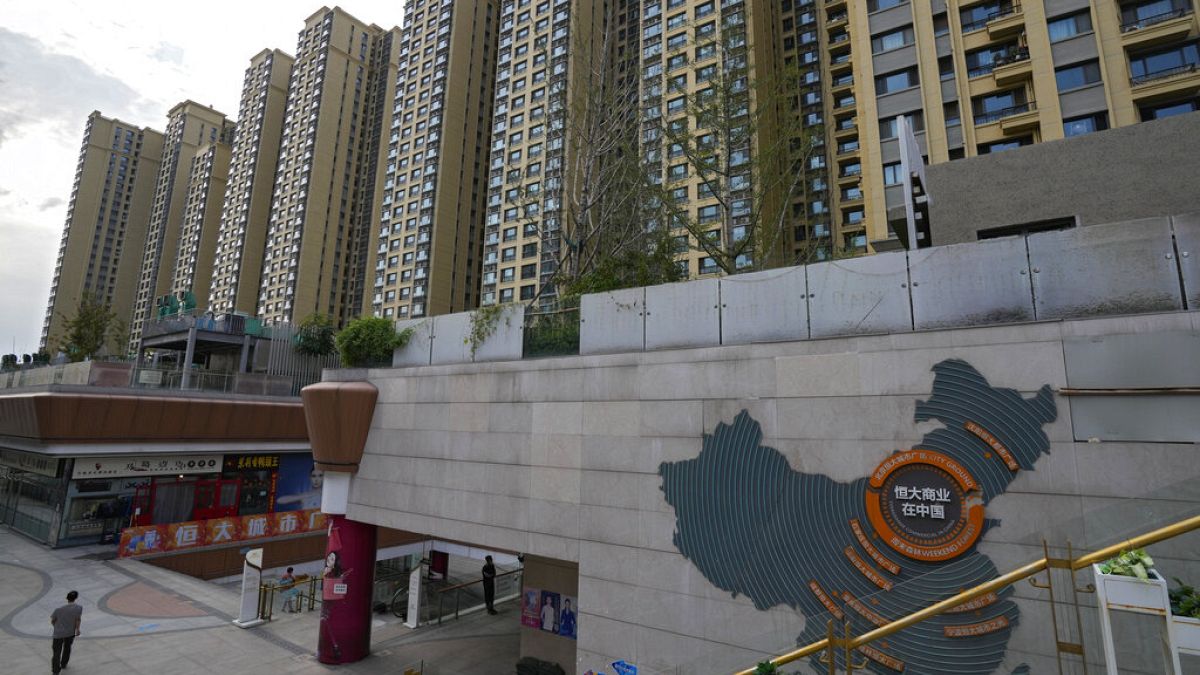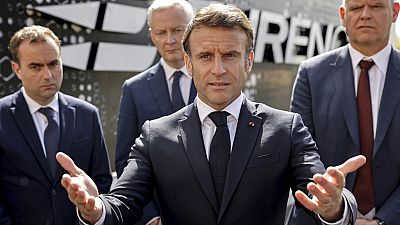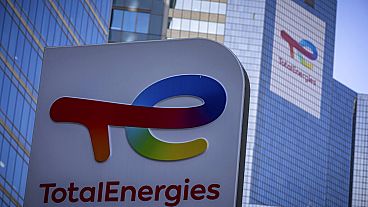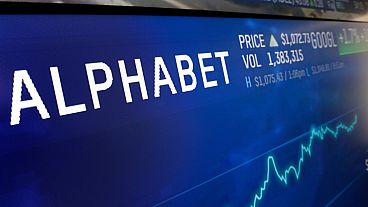The world’s most heavily indebted real estate developer has been ordered to undergo liquidation. But their assets don't cover their liabilities.
Evergrande's Hong Kong-traded shares plunged more than 20% early on Monday before they were suspended from trading after a Hong Kong court ordered the world’s most heavily indebted real estate developer to undergo liquidation.
The firm is the second biggest company in China's enormous property market, with $300 billion (€277 billion) owed to banks and bondholders.
A court order for a liquidation process means that the company's assets will be seized and sold off to repay its debts.
But in the case of Evergrande, some investors may not see their money. According to Bloomberg, the company's assets to cover its liabilities are worth just a little over $242 billion, most of which remain in mainland China.
The court decision is, however, only the beginning of a complicated process that investors are watching closely, mainly focusing on whether or not the Chinese courts will recognise Hong Kong's ruling.
How did Evergrande get here?
Evergrande first defaulted on its financial obligations in 2021, just over a year after Beijing clamped down on lending to property developers to cool a property bubble.
The news of defaulting triggered shockwaves in the global financial markets, but a restructuring plan was announced later.
The attempt has failed, according to the Hong Kong court, which now has decided to honour a petition filed earlier by investors to wind up the embattled property developer.
Judge Linda Chan said "It is time for the court to say enough is enough", adding that it was appropriate for the court to order Evergrande to wind up its business given a "lack of progress on the part of the company putting forward a viable restructuring proposal" as well as Evergrande’s insolvency.
Evergrande "has not demonstrated that there is any useful purpose for the court to adjourn the petition - there is no restructuring proposal, let alone a viable proposal which has the support of the requisite majorities of the creditors," said Chan after the decision.
She lambasted the company for putting out only "general ideas" about what it may or may not be able to put forward in the form of a restructuring proposal. The interests of creditors would be better protected if Evergrande is wound up by the court, she said.
Fergus Saurin, a lawyer representing an ad hoc group of creditors, said on Monday that he was not surprised by the outcome.
“The company has failed to engage with us. There has been a history of last-minute engagement which has gone nowhere,” he said.
Saurin said that his team worked in good faith during the negotiations. Evergrande “only has itself to blame for being wound up,” he said.
Evergrande could appeal the ruling.
What does the court decision mean for Evergrande?
The Hong Kong court liquidation order does not necessarily mean that Evergrande will go bust and collapse.
Evergrande CEO Shawn Siu told Chinese news outlet 21Jingji that the company feels “utmost regret” at the liquidation order. He emphasised that the order affects only the Hong Kong-listed China Evergrande unit.
The group's domestic and overseas units are independent legal entities, he said. Siu said that Evergrande will strive to continue smooth operations and deliver properties to buyers.
"If affected, we will still make every effort to ensure the smooth advancement of risk resolution and asset disposal, and we will still make every effort to advance all work fairly and in accordance with the law," he said.
The 21Jingji article appeared to be briefly taken down on Monday afternoon but was republished shortly afterwards.
It's unclear how the liquidation order will affect China's financial system.
It's also unclear how the liquidation order will affect Evergrande's vast operations in the Chinese mainland. As a former British colony, Hong Kong operates under a legal system that is separate from, though increasingly influenced by, communist-ruled China's.
In some cases, mainland courts have recognised bankruptcy rulings in Hong Kong but analysts say Evergrande's is something of a test case.
How might such a collapse impact European businesses?
Experts have previously told Euronews Business that the Chinese property market has been serving as the engine of the global economy, emphasising that along with all the sectors supporting it, the real estate market in the world's second-biggest economy is worth $100 trillion, a staggering six times of China's $18 trillion economy.
Global financial markets were rattled earlier by fears an Evergrande liquidation could cause global shockwaves. However, Chinese regulators said the risks could be contained. Only a few billion dollars of Evergrande’s debt was owed to foreign creditors.
Evergrande Group is one of the biggest Chinese developers that have collapsed since 2020 under official pressure to rein in surging debt that the ruling Communist Party believes will worsen China's slowing economic growth.
Real estate drove China's economic boom, but developers borrowed heavily as they turned cities into forests of apartment and office towers. That has helped to push total corporate, government and household debt to the equivalent of more than 300% of annual economic output, unusually high for a middle-income country.
If the Chinese property market plunges into turmoil over the difficulties of Evergrande, there could be a knock-on effect, which could put real-estate projects as far as London at risk, as many have Chinese investors financing them.
On the other hand, the European Central Bank (ECB) said earlier that European banks have no significant exposure to Evergrande and any collapse would have a limited impact on the European markets.
However, the ECB also said in a report that tensions in large corporate sectors, such as the real-estate sector, could be transmitted to the rest of the Chinese economy, for instance, through households, whose wealth is significantly exposed to the real estate market.
A potential collapse could therefore drag household consumption in the country where major global brands saw their future profit skyrocketing from Apple to LVMH after they heavily invested in the market in the last decade.
Many European companies are directly exposed to any shock or default in the Chinese property market, including the Ashmore Group, a UK investment manager specialising in emerging markets, holding upwards of $500 million of Evergrande bonds.



